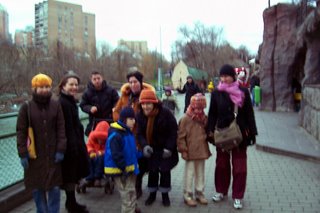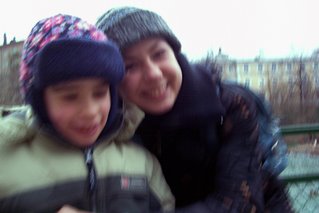Last Thursday as the sun went down, had you been traveling in rural Comanche county, past the fields of cows and quiet ranch houses, miles away from any city lights,
 you might have seen a car stopped by the side of the road—its blinkers on and music issuing almost imperceptibly from its closed doors. Had you been a native West Texan, you might have wondered at the car’s California plates, noticeably out of place among the pump jacks and mesquite trees silhouetted in the darkening West Texas sky. “Tourists” you might have thought at first, but then you would have remembered that there is nothing to draw tourists to Rising Star, Texas, or, for that matter, to the nearby towns of Pioneer, Okra, or Chuckville. You might have thought “kin”, but then you would have had to rationalize the car’s present stopping place in the middle of nowhere. Ultimately, you would have been forced to conclude that the artifact from California had ended up where it was for a reason, and that, since it wasn’t your business to meddle in Californians’ affairs, you’d better just pass on by and be grateful that you were a Texan.
you might have seen a car stopped by the side of the road—its blinkers on and music issuing almost imperceptibly from its closed doors. Had you been a native West Texan, you might have wondered at the car’s California plates, noticeably out of place among the pump jacks and mesquite trees silhouetted in the darkening West Texas sky. “Tourists” you might have thought at first, but then you would have remembered that there is nothing to draw tourists to Rising Star, Texas, or, for that matter, to the nearby towns of Pioneer, Okra, or Chuckville. You might have thought “kin”, but then you would have had to rationalize the car’s present stopping place in the middle of nowhere. Ultimately, you would have been forced to conclude that the artifact from California had ended up where it was for a reason, and that, since it wasn’t your business to meddle in Californians’ affairs, you’d better just pass on by and be grateful that you were a Texan.The car was ours, and the story of how it came to rest on a country road in the middle of rural West Texas is worth telling. It started with a sunset. Driving home from Brownwood, Texas, where we had helped my sister move in to her college dorm, we witnessed a dazzling display on the horizon—the sky awash in streaks of blue and gold as a thunderstorm faded with the dying light. We had to stop and take a picture. Mistake number one—violating the Texas Code of Living: Texans don’t stop and take pictures. The cosmic forces of Texas immediately made us pay for the mistake by locking our car doors and blowing them shut—our keys still inside. Then, without warning, the beautiful storm we had been watching in the distance changed course and began heading back towards us, thundering ominously and blackening the sky as it advanced.

As the rain began pounding the ground in front of us, our vision was clouded so that the only light we could see was the car’s turn signal blinking feebly orange. We had seen a ranch house in the distance before the storm hit, and we fled from the storm in the general direction of the ranch. Fortunately, we found the ranch house after a short sprint and the elderly couple inside graciously allowed us to use their phone, having first made sure that we were not rogue highwaymen come to wrestle their cattle. (I admit we did look rather harried—and I’ve always fancied myself a bandito.) A few phone calls later (including one “800 number” that was NOT a 24-hour towing hotline), I managed to locate an ‘ol boy with a truck who would help. Our conversation proceeded thusly: “When can you come?” I asked.

“Is it stormin’?”
“Yeah,” I said. “It’s comin’ down pretty hard” (I did my best ol’ boy Texas accent here.)
“Will I get wet?”
“Very likely.”
“Well, then, I’ll come whenever the storm finishes.”
“How long will that be?” I asked.
“Hard to say,” he said. It was clear that the cultural barrier had been breached at this point and I was not a welcome stranger. Imagining a long night in a lonely farmhouse in the middle of nowhere, I changed tactics.
“Is there anything I could do to persuade you to come more quickly?” I importuned.
“Depends” he said. “I don’t wanna get wet. What are you offerin’?”
So much for Texas hospitality. After a bartering session, we reached a gentleman’s agreement on a rip-off price and our noble rescuer promised to brave the storm and be there soon.
In the meantime, the kind woman who had taken us in had been talking nonstop to K— and was now scooping pecans into a bag for us to take on our way. This stranger, a veteran of many years on West Texas farms, had managed during our short intrusion to cover her entire family history from the Civil War to the present, with photographs for illustration. But her loquacity was comforting in a way, for the generous welcome and hospitality we received reminded us that there are still places where a stranger stranded by the side of the road will be taken care of—without thought of reparation or consideration of cost.
The ol’ boy towing man arrived about twenty minutes later, minutes after the rain had stopped completely. After taking all of two minutes to wedge open our car door and lift the lock with a tool, the tow-man went his way and we went ours. I began thinking about how silly we had been to make such a costly and time-consuming mistake. Then K— spoke. “That was amazing!” she said. “I wish that would happen more often.”

















